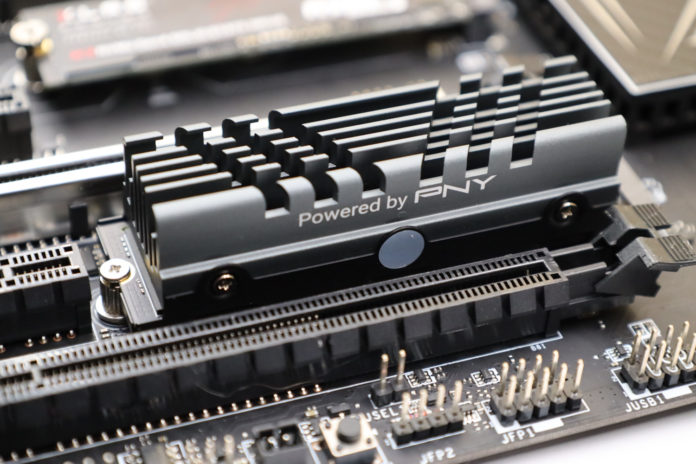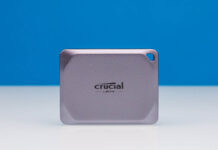Today we are looking at PNY’s CS3140 SSD. Much like the recently reviewed WD Black SN850X, the CS3140 is an update to a previous PNY Gen4 drive in the CS3040. The CS3040 was part of the “first wave” of PCIe 4.0 SSDs and was based on Phison’s PS5016 controller. By contrast, the CS3140 is based on the PS5018, which is a significantly higher performance controller and is featured in a number of high-end drives like the Sabrent Rocket 4 Plus and the Seagate FireCuda 530. Given that kind of pedigree, I have high expectations for the CS3140, so it is time to get to testing.
PNY CS3140 1TB NVMe SSD
The PNY CS3140 1TB comes in a single-sided M.2 2280 (80mm) form factor and is available both with and without a heatsink. Interestingly enough, I happen to have both for my review.
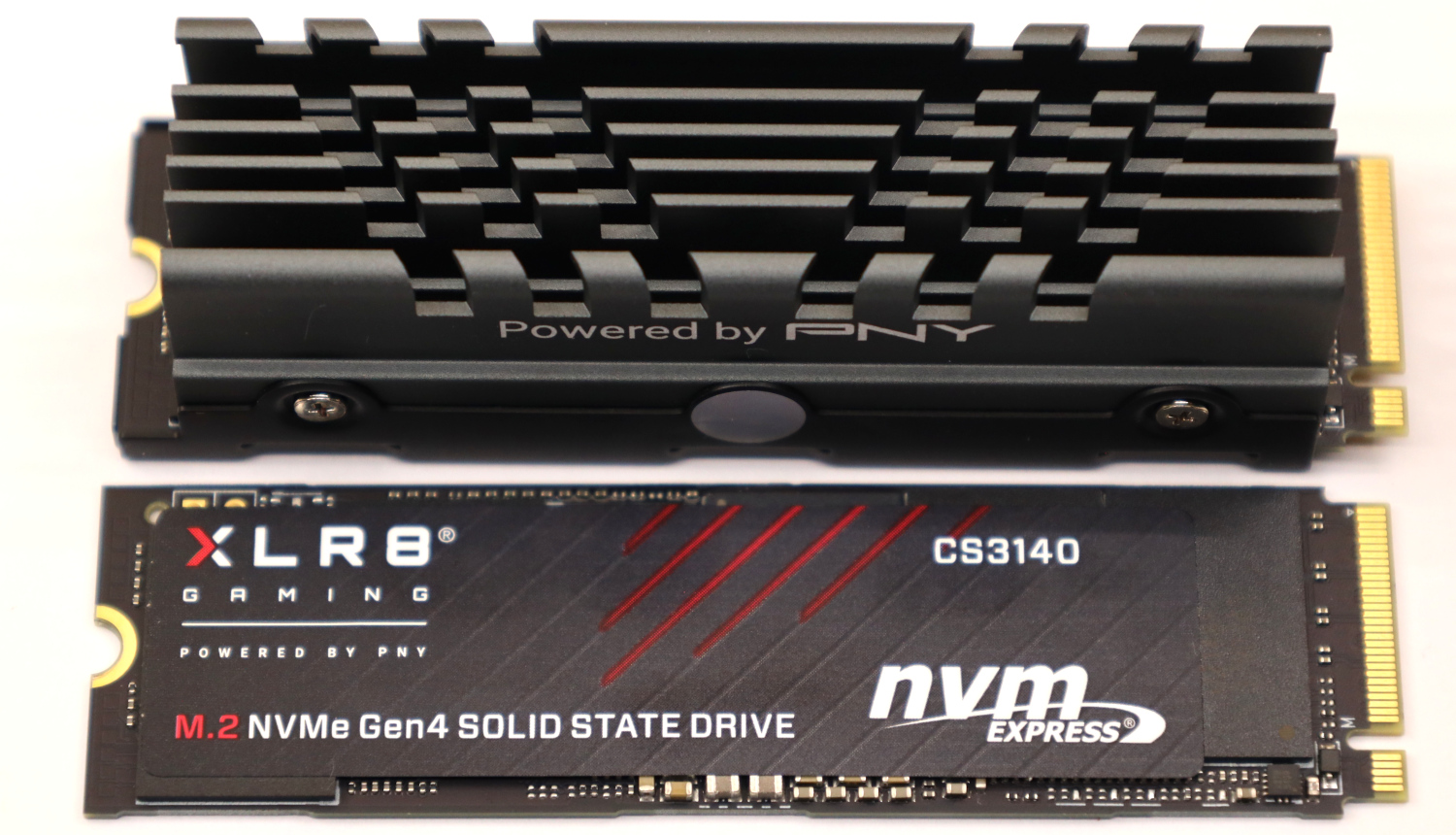
The PNY CS3140 is built on very similar components to drives like the Rocket 4 Plus. The Phison PS5018-E18 controller is paired with 176-layer Micron B47R TLC NAND and a DDR4 DRAM cache. These are top-shelf components, and the performance should be good based on that alone.
Normally, this is the part of the review where I bash a drive for coming with a non-removable heatsink. I recently did this with the WD SN850X. The PNY CS3140, however, is a bigger challenge.
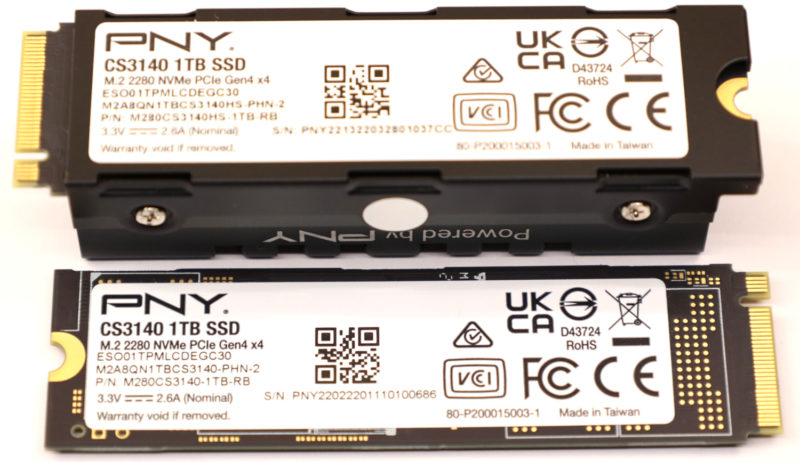
Please take notice of two things in the above picture. One is the little silver circular sticker on the side of the heatsink, right between the two screws. The other is the bit of text in the bottom-left of the label – Warranty void if removed. The circular sticker is one of those metallic “evidence of tampering” type stickers that manufacturers use as an indicator of whether a component has been opened or not. Here, that sticker covers one of the screws necessary to remove the heatsink; you cannot take it off without puncturing that sticker. Combined with the warning about voiding your warranty, along with some other quibbles I have regarding PNY’s warranty (foreshadowing), this is enough to have some cause for concern.
PNY CS3140 SSD Specs
The CS3140 line of SSDs is available in sizes between 1 TB and 4 TB.
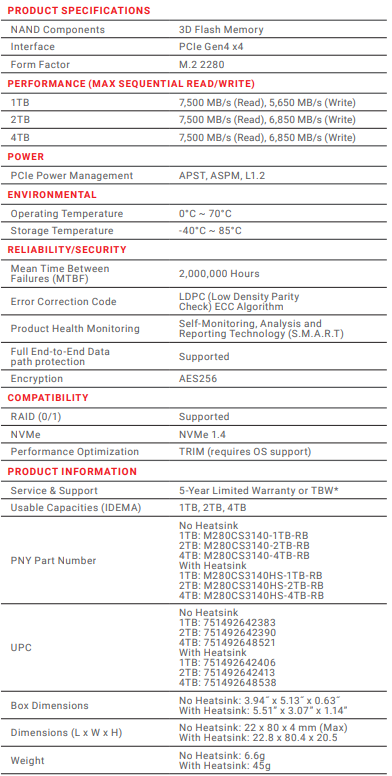
Today we are looking at both 1TB models with and without a heatsink. The rated sequential read speed is 7500 MB/s and sequential write is 5650 MB/s. These are top-tier claimed performance for a 1TB Gen4 drive.
Here is where I come to my second warranty-related quibble. PNY notes that the warranty is “5-Year Limited Warranty or TBW*” and then farther down the document there is a footer that reads “*For full details visit www.pny.com“. So I did visit PNY.com, and right there on the product page for the CS3140 it once again has an asterisk next to the warranty’s endurance rating, referring you to PNY.com.
I did eventually manage to find the number in this generic PDF; 700TBW for the 1TB model. My issue here is not the actual endurance – 700TBW is absolutely fine for a 1TB SSD. My issue is how hard it is to find that information. In addition, users with particularly sharp memories might remember my review of the PNY CS1030 and CS2130, both of which also did not list an endurance rating. Those drives did not reference a TBW-based endurance rating at all, which you can see from my screenshots of the spec sheets, and at the time I reached out to PNY support and was told that both drives carried a 5-year warranty with no specific endurance rating. Now that I found the generic warranty PDF, I cannot help but notice that both the CS1030 and CS2130 do have endurance ratings in TBW, contrary to previous statements from support. I also went and looked at their spec sheets again, and now those documents sport the “or TBW” language that was previously lacking.
My point in all of this is that warranty and endurance information should be easy to find and clearly marked, not hidden in obscure PDFs or not disclosed at all. In my opinion, everything you should need to know about a drive to make a purchasing decision, which includes warranty and endurance information, should be printed on the box. PNY seems to be the only vendor I have looked at that makes a repeated habit out of trying to hide their own endurance ratings, to the point that their own support staff does not know the figures. Hopefully, PNY will change its ways.
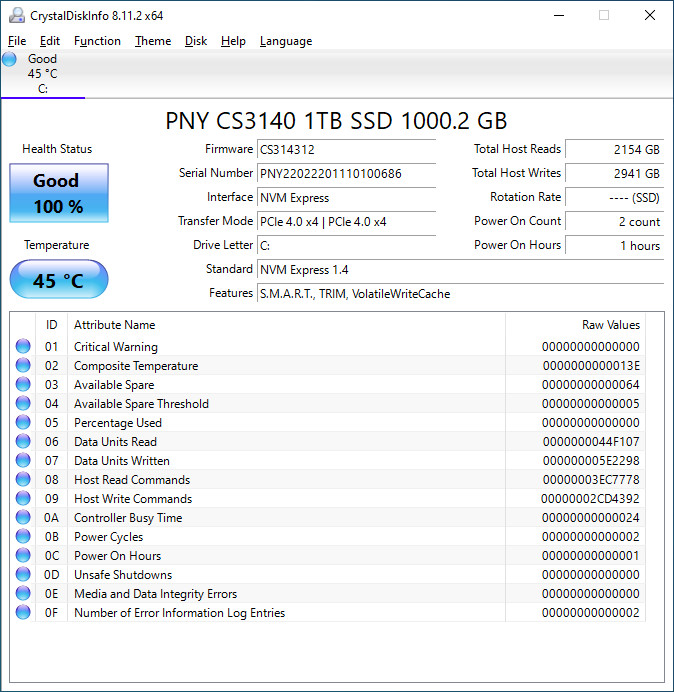
CrystalDiskInfo can give us some basic information about the SSD and confirms we are operating at PCIe 4.0 x4 speeds using NVMe 1.4.
Test System Configuration
We are using the following configuration for this test:
- Motherboard: ASUS PRIME X570-P
- CPU: AMD Ryzen 9 5900X (12C/24T)
- RAM: 2x 16GB DDR4-3200 UDIMMs
Our testing uses the PNY CS3140 1TB as the boot drive for the system, installed in the M.2_1 slot on the motherboard. The drive is filled to 85% capacity with data, and then some is deleted, leaving around 60% used space on the volume.
Please note that I will not present separate test results for the heatsink and no-heatsink models of the drive. Provided adequate cooling, they performed identically.
Next, we are going to get into our performance testing.

